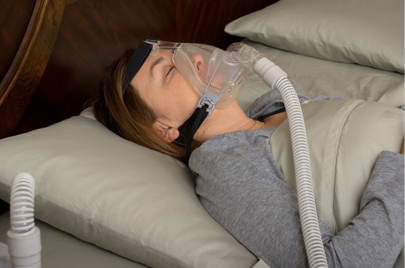
Science Daily recently reported on a new study that links abnormal breathing patterns such as sleep apnea and snoring to memory and cognitive decline at an earlier age. Recognizing and treating the sleep-disordered breathing with a continuous positive airway pressure (CPAP) machine can delay the onset of cognitive decline, say the researchers.
The researchers examined the medical histories of 2,470 people ages 55 to 90 and categorized them into three groups on the basis of whether:
- They were free of memory and thinking problems
- They were in early stages of mild cognitive impairment (MCI)
- They had Alzheimer’s disease
They compared participants with untreated sleep breathing problems and those without the sleep breathing problems as well as untreated participants with treated people who had sleep breathing problems.
The researchers found that:
- Participants with sleep breathing problems were diagnosed with MCI about 10 years earlier than people who did not have sleep breathing problems.
- Those who treated their sleep breathing problems with a CPAP machine were diagnosed with memory and thinking problems about 10 years later than people whose problems were not treated.
- The age at which MCI began for people whose breathing problems were treated was almost the same as that of people who were free of breathing problems.
The lead author points out that these results are encouraging and that future studies need to focus on whether using CPAP could possibly help prevent or delay memory and thinking problems.
These findings are really significant as, according to the National Sleep Foundation, more than 18 million Americans have sleep apnea. So if your partner snores and has other signs of sleep apnea, don’t ignore the condition. Symptoms to look for include loud snoring, brief pauses in breathing and unexplained fatigue during the day. If you notice any of these signs, encourage your loved one to get medical attention.